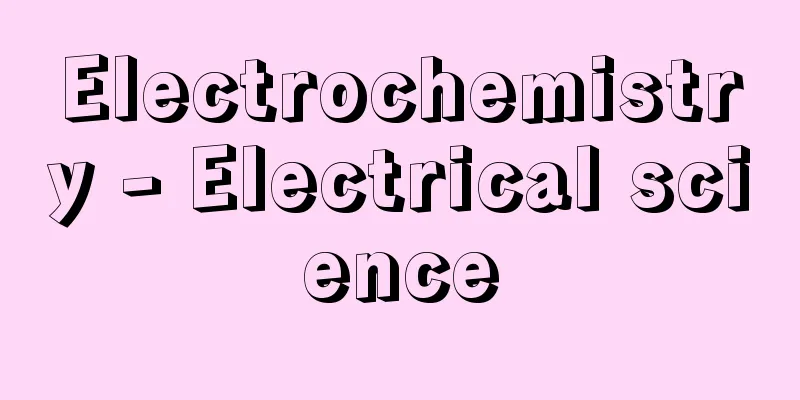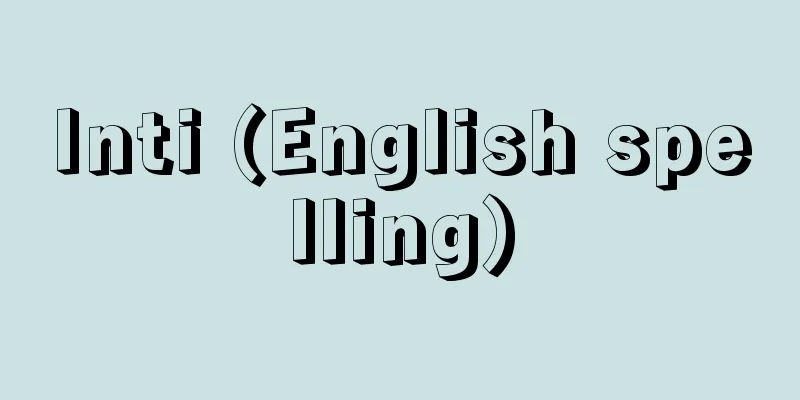Electrochemistry - Electrical science

|
A branch of physical chemistry that examines the correlation between chemical energy and electrical energy. The theory of electrochemistry is based on thermodynamic equilibrium theory, reaction kinetics (especially heterogeneous reactions), and electrolyte solution theory. Its applications include: Source: Morikita Publishing "Chemical Dictionary (2nd Edition)" Information about the Chemical Dictionary 2nd Edition |
|
化学エネルギーと電気エネルギーとの相関関係を検討する物理化学の一分野.電気化学の理論は熱力学的な平衡論,反応速度論(とくに不均一反応),および電解質溶液論を主体として組み立てられている.その応用は, 出典 森北出版「化学辞典(第2版)」化学辞典 第2版について 情報 |
>>: Electric circuit - denkikairo (English spelling) electric circuit
Recommend
"Osono Rokusa"
...6th dan. Commonly known as "Osono Rokusa&...
Cow frame - Ushiwaku
〘 noun 〙① = ushibari (cow beam) ② A flood control ...
Ancient dragonfly - Ancient dragonfly
An insect belonging to the order Odonata and the ...
Maypole
...The Kabbalistic tree was passed down to mystic...
dichlamydeous flower
...The flowers of Mirabilis and Daphne daphne loo...
Awa Maru Incident
On April 1, 1945 (Showa 20), towards the end of W...
Ogawa Shosen
Year of death: June 14, 1760 (July 26, 1760) Year ...
Karon Kiln - Karonyo
…Although they produce almost the same products a...
Thoracic nerve
There are 12 pairs of spinal nerves that emerge fr...
Erechtheion (English spelling)
An ancient Greek Ionic temple built on the north ...
Boring machine (English: Nakaguriban)
A machine tool used to enlarge an already drilled ...
Schwechat
...The autobahn to Salzburg and Seebenstein has a...
Verb - vocabulary
In Japanese grammar, along with "nouns,"...
INH - INH
《 isonicotinic acid hydrazide 》⇒ isonicotinic acid...
Fosterage
...In Okinawa and mainland Japan, there are cases...





![Hudson [River] - Hudson](/upload/images/67cc89c1eae4f.webp)



